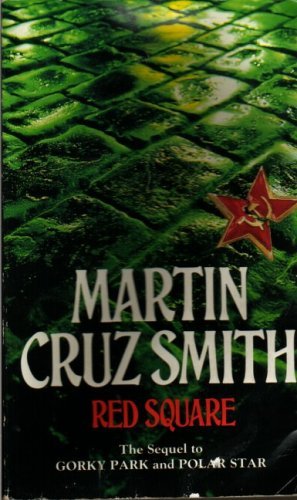
Red Square
Book Description
A body lies at the heart of Moscow, igniting a race against time that pulls detective Arkady Renko into a deadly web of political intrigue and dark secrets. As he navigates the frostbitten streets of Red Square, each clue leads him deeper into a labyrinth of betrayal where shadows of the past intertwine with the present. Loyalties shift, enemies lurk, and danger is just a heartbeat away. With the clock ticking, Renko must confront not only the ghosts of history but also the choices that could cost him everything. When morality blurs with survival, what will he sacrifice to uncover the truth?
Quick Book Summary
In Martin Cruz Smith's "Red Square," investigator Arkady Renko is thrust back into the chaos of Moscow on the eve of the Soviet Union's collapse. A murder intertwined with black market art smuggling plunges him into a maze of political corruption and criminal conspiracy. Amid shifting alliances and old flames, Renko must navigate the treacherous landscape where power brokers vie for control and trust is a rare commodity. His pursuit of justice becomes deeply personal, especially when past relationships, especially with Irina, resurface and complicate his mission. As Renko races against time through Russia and Germany, he confronts not just criminal masterminds, but also ethical dilemmas and the uncertain identity of his homeland. The novel masterfully blends espionage, existential crisis, and the tension of a society in upheaval.
Summary of Key Ideas
Table of Contents
Crumbling Society and Political Upheaval
Set during the final days of the Soviet Union, the novel opens with investigator Arkady Renko's reluctant return to Moscow after years of exile. The city is immersed in dramatic social and political transformation, with old institutions collapsing and chaos erupting in everyday life. Renko, a stubbornly honest detective, is drawn into the investigation of a journalist's murder—a case that quickly reveals connections to the black market and the shadowy world of art theft. As he unravels the threads, he finds that each path leads deeper into the labyrinth of Russia's dying bureaucracy and burgeoning criminal underworld.
Ambiguity of Morality and Loyalty
Throughout the investigation, questions of morality, loyalty, and personal survival constantly arise. Renko faces officials and criminals alike, unsure who can be trusted as allegiances are fluid in a city where yesterday's rules no longer hold. The lines between right and wrong, justice and corruption, blur as Renko must consider compromises and risks he once would have abhorred. The investigation becomes as much a battle of wits with deceitful colleagues as with the mysterious killer.
Personal Stakes and Old Relationships
Personal stakes soar when Renko reconnects with Irina Asanova, his former lover, who re-enters his life unexpectedly and embroils him further in the case. Their relationship is strained by mistrust, the lingering pains of the past, and by the dangerous world swirling around them. The emotional dimension complicates Renko’s decisions, and the threat to their safety intensifies as they move between Moscow and Berlin, tracing the criminal conspiracy across borders.
Art, Culture, and the Black Market
Art becomes a central motif, with the smuggling of a priceless painting echoing the ongoing theft and loss experienced by a country in transition. The novel explores the symbolic importance of culture and history in a departing society as the illicit art trade mirrors the larger black market economy. Renko's pursuit of the painting is entwined with the search for justice and his quest to understand what, if anything, endures amid upheaval.
Survival Amidst Chaos
Ultimately, Renko’s journey is not only a thriller about a murder and a heist but also a meditation on personal and national identity at the edge of dissolution. The closing events force him to confront the cost of survival in a world with shifting moral ground. Smith’s atmospheric writing captures the frostbitten streets, the subtle paranoia, and the desperate hope that survive in the ruins of empire. With danger always a step behind, Renko must decide what kind of man he wishes to be in a society where nothing is certain and everyone is at risk.
Download This Summary
Get a free PDF of this summary instantly — no email required.





